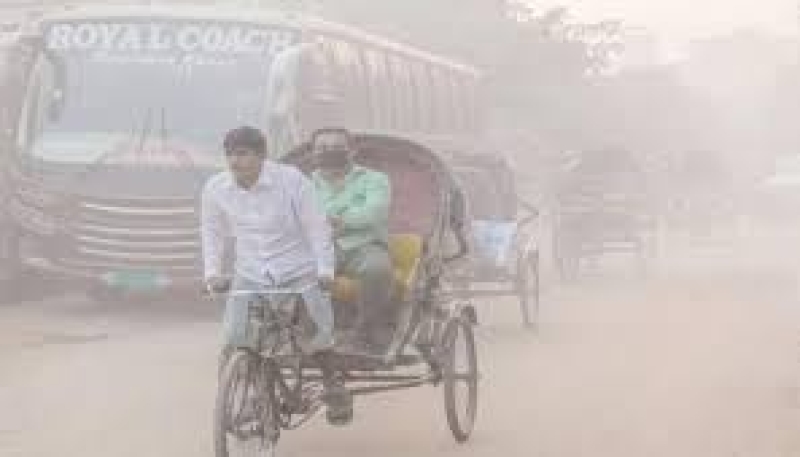- 136 new drugs in 195 essential drugs list, pricing guidelines |
- BSF halts overnight road building near border as BGB intervenes |
- U.S. Pullout From Global Bodies Sparks Widespread Alarm |
- DU Syndicate for renaming Sheikh Mujib Hall after Osman Hadi |
Dhaka’s air quality still remains unhealthy on Sunday

Air pollution representative image
Dhaka, the overcrowded capital city of Bangladesh, has ranked the second on the list of cities with the worst air quality with an AQI score of 218 at 9am this morning (January 26, 2025).
Today's air was classified as ‘very unhealthy', referring to a severe health threat, according to the AQI index. Such an unhealthy environment has been prevailing in the densely polluted city over the past few days.
When the AQI value for particle pollution is between 50 and 100, air quality is considered ‘moderate’, usually sensitive individuals should consider limiting prolonged outdoor exertion, between 101 and 150, air quality is considered ‘unhealthy for sensitive groups’, between 150 and 200 is ‘unhealthy’, between 201 and 300 is said to be 'very unhealthy', while a reading of 301+ is considered 'hazardous', posing serious health risks to residents.
Pakistan’s Karachi, Myanmar’s Yangon, and India’s Delhi cities respectively occupied the first, third and fourth spots on the list, with AQI scores of 237, 190 and 180 respectively.
The AQI, an index for reporting daily air quality, informs people how clean or polluted the air of a certain city is and what associated health effects might be a concern for them.
The AQI in Bangladesh is based on five pollutants: particulate matter (PM10 and PM2.5), NO2, CO, SO2, and ozone.
Dhaka has long been grappling with air pollution issues. Its air quality usually turns unhealthy in winter and improves during the monsoon.
As per World Health Organization (WHO), air pollution kills an estimated seven million people worldwide every year, mainly due to increased mortality from stroke, heart disease, chronic obstructive pulmonary disease, lung cancer, and acute respiratory infections.

